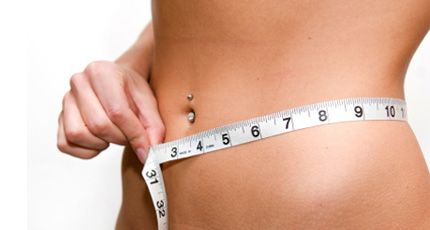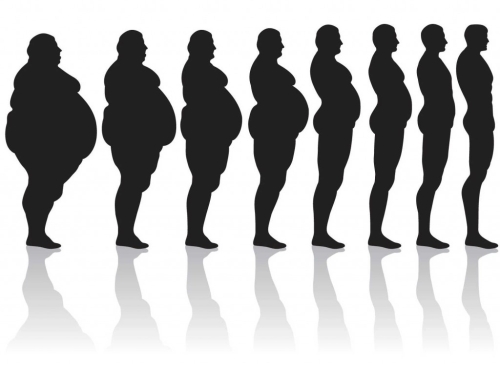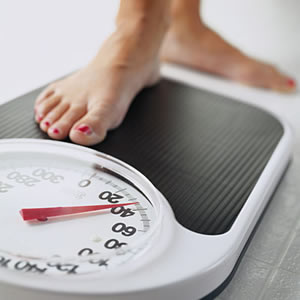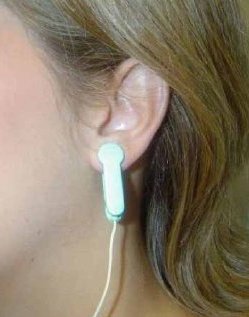To change your weight,
first change your mind,

Weight loss is a multi milion dollar Business that
relies on your fauliure and guilt,
As weight loss programs, diets don't work! Yes, you
lose weight, but about 95% of people who lose weight
by dieting will regain it in 1-5 years. Since dieting,
by definition, is a temporary food plan, it won't work
in the long run. Moreover, the deprivation of restrictive
diets may lead to a diet-overeat or diet-binge cycle.
And since your body doesn't want you to starve, it responds
to overly-restrictive diets by slowing your metabolism
which of course makes it harder to lose weight.
In the US, 80% of girls have
been on a diet by the time they're 10 years old.
In this honest, raw talk, neuroscientist Sandra
Aamodt uses her personal story to frame an important
lesson about how our brains manage our bodies,
as she explores the science behind why dieting
not only doesn't work, but is likely to do more
harm than good. She suggests ideas for how to
live a less diet-obsessed life, intuitively. Here |
Fad diets can be harmful. They may lack
essential nutrients, for example. Moreover, they teach
you nothing about healthy eating. Thus, when you've "completed" your
fad diet, you simply boomerang back to the unhealthy
eating patterns that caused your weight gain in the first
place! This is the beginning of "yo-yo dieting," which
can bring its own health problems in its wake.
There's a powerful connection
between being overweight or obese and having
heart disease as an adult. The heart, our hardest-working
muscle, spends every second of every day vigorously
pumping blood to the farthest reaches of our
bodies. The larger we become, the harder our
hearts have to work to keep blood circulating.
The bottom line: being overweight or obese places
you at a higher risk of developing heart disease
and suffering a stroke as an adult.
Beyond the cardiovascular system,
excess weight has negative consequences throughout
the body. "Almost every organ system in
the body is adversely affected by having excess
body fat," says Dr. Samuel Klein, director
of the Center for Human Nutrition at Washington
University in St. Louis. |
Weight loss is tricky business. Obviously
what you eat has a huge impact on your health and body
weight. But anyone who has ever tried to modify their
diet for the sake of losing weight knows it isn’t
so simple.

Most of us understand intuitively that broccoli is healthier
than cookies. We can talk about sugar, fat, gluten, and
antioxidants all day, but that doesn’t change the
fact that cookies taste good and you still want to eat
them. Any weight loss plan that simply tells you what
to eat and neglects why you make the choices you make
is unlikely to help you in the long run.
The
Weight of a Nation
Nutrition knowledge is important, but it
is only one piece of the puzzle. The real secret is understanding
your behaviors and motivations at their roots, and using
this information to have a meaningful impact on your
health. In this sense, good health starts in your brain,
not on your plate.

Willpower
The first thing you need to understand is that we don’t have as
much control over our food decisions as most of us assume. We tend to
believe that we can call on willpower anytime we wish and use it to order
a salad instead of a burger, and if we fail to do so it is our own fault.
However, self-control is not something we can simply turn on or off,
and as a result the process of decision making––particularly
when it comes to food––is much more complex.
"Once established, habits
occur automatically without expending any willpower
or mental effort. Scientists have estimated that
up to 90 percent of our daily food decisions
occur as a result of habits. This saves our brain
energy for more difficult decisions where habits
cannot be used" |
Addiction
Processed foods are addictive and
can cause you to overeat.
Eating highly processed or highly concentrated
foods can artificially stimulate dopamine (the pleasure
neurotransmitter), which plays a role in addiction. In
this way, you are eating foods that lack nutrients and
fiber, but create a pleasurable feeling. A food addiction
starts because you feel good when you are eating these
foods and they make you think they taste better. You
crave that pleasurable feeling again and again and viola…this
is what starts a food addiction.
"If you ever find
yourself in the fridge, even though you’ve
recently eaten, then you know hunger isn’t
the reason. More than likely some negative
emotion – feeling angry, lonely, sad,
stressed, anxious, bored - has triggered a
habit of using food to feel better. " |
MSG is
one of the most common food additives among fast food
and snack foods, used to make the flavor of foods more
bold. MSG causes addictive habits because the more you
eat, the longer it takes to feel satisfied. In other
words, one fast food sandwich and a small order of fries
won't always cut it. Your disguised, larger-than-life
appetite gives false information to your brain, prolongs
feeling full and leads you to order the largest menu
items available ... and a milkshake, too.
Sugar
Sugar in fast food is usually in the form of high fructose corn syrup
and hydrogenated and partially hydrogenated oils. Sure enough, sugar
can cause cravings similar and of the same intensity as addictive drugs,
according to the US National Library of Medicine (USNLM).

The list goes on
A report from Health.com says
fast food affects the brain the same way as cocaine and
heroin do.
"Love of the Salty taste
is an addiction similar in quality to the addictions
to alcohol, tobacco, sugar, caffeine and a host of others," says
Dr. Ron Kennedy of the Anti-Aging Medicine Clinic in
Santa Rosa.
During digestion, Casein (Fast
food companies often add casein to french fries, breads,
milkshakes and salad dressings.)breaks apart to release
a host of opiates called casomorphins, according to The
Physicians Committee in Washington, D.C.
"People who have successfully
lost weight activate certain parts of their brains
when confronted with images of food, according
to new research.
The US study indicates that
those who lose weight and keep it off tap into
regions of the brain related to control over
urges.
Study participants, who were
a mix of people of normal weight, people who
were overweight and those who had successfully
lost weight, underwent brain scans as they
looked at pictures of high- and low-kilojoule
foods.
The MRI scans revealed that
those who had successfully lost weight showed
more activity in the parts of the brain that
are associated with inhibition and in dealing
with complex tasks, according to study author
Jeanne McCaffery."
CES STIMULATES BRAIN POWER |
Opiates often bring a calming sensation,
comfort and release to the brain; therefore, a psychological
bond to their source: fast food.
Researchers at the University of Colorado
Denver also found addiction to reach far beyond recreational
drugs and into the realm of food. Fatty
foods, in recent years, have become the
target of cravings, a substitute for boredom and a "solution" for
stress.
"There are overlaps in the brain pathways
activated by palatable foods and drugs of abuse," Dr.
Nicole Avena said. "Drugs act on brain systems that
evolved to reinforce natural behaviors. Thus, the circuitry
is in place for food to be addictive."

How Can this
Knowledge Help Us Lose Weight?
The best
way I can describe this positive mindset is ‘getting
your head straight’
Research shows that one of the most important
factors that influences weight loss success is your attitude – whether
or not you believe (and keep on believing) that you can
make the changes you need to make to lose weight, and
that they are worth doing. This is because what you think,
affects how you feel, and in turn the actions you take.
Listen to your self-talk and recognise it’s
happening.
Stress Do
you feel like you're prone to putting on more weight
when you're stressed, even if you're eating the same
amount of food as you always have? Too much cortisol
can slow your metabolism, causing more weight gain than
you would normally experience. This also makes dieting
more difficult.Cravings -- OK, you're stressed. Do you
reach for a nice salad or a pint of beer? People experiencing
chronic stress tend to crave more fatty, salty and sugary
foods. This includes sweets, processed food and other
things that aren’t as good for you. These foods
are typically less healthy and lead to increased weight
gain.
Sleep "Studies
have suggested sleep deprivation leads to overeating
and disruptions in circadian rhythms that put you at
a higher risk for heart disease, obesity, depression
and even Type 2 diabetes. Not getting enough sleep can
also lead to hormonal changes in men and women that can
disrupt hunger signals and stimulate appetite or lessen
feelings of satiety."
Depression "Antidepressants
are the most-prescribed drugs in the U.S. for people
between the ages of 18 and 44, and more than 10 percent
of Americans are on them at any given time. And yet,
some people who desperately need to be taking them
are afraid to start because certain types of antidepressants
have been associated with weight gain. Thus,
a bitter cycle ensues: You’re depressed, so
you get on antidepressants. You get “fat,” which
doesn't help the depression. And repeat."

Drugs
Many
drugs used to treat obesity-linked conditions such as
diabetes, high blood pressure, and depression can themselves
cause weight gain.
Paxil
(paroxetine)
Depakote
(valproic acid)
Prozac
(fluoxetine)
Remeron
(mirtazapine)
Zyprexa
(olanzapine)
Deltasone
(prednisone)
Thorazine
(chlorpromazine)
More

To
change your weight, first change your mind
Its been
well established that CES has helped
Randomized
Controlled Trials
Open Clinical
Trials
SCIENTIFIC
ARTICLES Cranial Electrotherapy Stimulation
 1
Addictions Curb Your Food Addiction 1
Addictions Curb Your Food Addiction
 2
Stress 2
Stress
 3
Sleep 3
Sleep
 4
Anxiety 4
Anxiety
 5
Depression 5
Depression
 6
Insomnia and Sleep problems ETC 6
Insomnia and Sleep problems ETC
All of which can cause weight
gain,, so if you have tried the latest Diets
and Fads,, NONE OF WHICH TREAT
THE UNDERLYING CAUSE, perhaps its time to
simply go to the seat of the problem,,

"Kennerly (2006) found that persons
treated with CES for 20 minutes exhibited significant
changes in the EEG, including increased alpha (8-12Hz)
relative power and decreased relative power in the delta
(0–3.5Hz) and beta (12.5-30Hz) frequencies. Increased
alpha typically correlates with improved relaxation and
possibly increased mental alertness or clarity (Thompson & Thompson,
2003), while decreased delta suggests reduced drowsiness.
Beta reductions were exhibited mostly between 20-30Hz
and this frequency band correlates with reductions in
anxiety, ruminative thought, and obsessive/compulsive-like
behaviors (Demos, 2005). Kennerly further reported that
quantitative electroencephalography (qEEG) and low resolution
electromagnetic tomography (LORETA) analyses showed that
the electrical pulses generated by the Alpha-Stim reached
all cortical and subcortical areas of the brain.
CES Treatment Effectiveness
Based on qualitative criteria recommended by Kirsch & Gilula (2007a),
large effect sizes (i.e., >.50) are well established across a number
of controlled and uncontrolled studies in the Alpha-Stim treatment of
a wide variety of psychological and physical disorders (Kirsch & Smith,
2004; Kirsch & Gilula, 2007a; Kirsch & Gilula, 2007b; Kirsch & Gilula,
2007c; Kirsch & Gilula, 2007d; Matteson & Ivancevich, 1986; Moore,
1975; Rosenthal & Wulfsohn, 1970; Rosenthal, 1972; Smith & O’Neill,
1975).
Depression and Anxiety
A meta-analysis of CES for depression that included 20 studies and 975
subjects revealed a mean effect size rating of .50 (Kirsch & Gilula,
2007c; Kirsch & Gilula, 2007d). A meta-analysis of CES for anxiety
which included 41 studies comprising 2049 participants found a mean
effect size ratings of .57. This large effect size decreased to .53
using only double-blinded studies in the analysis (Kirsch & Gilula,
2007a; Kirsch & Gilula, 2007b). A recent uncontrolled pilot study
into CES for chronic and pervasive anxiety (i.e., generalized anxiety
disorder) found a 50% average reduction in self-reported anxiety by
a majority of treatment completers (Bystritsky, Kerwin, & Feusner,
2008).
Insomnia
A meta-analysis of 20 studies involving 1083 participants that received
CES for sleep difficulties (mostly insomnia) was recently completed.
CES for insomnia achieved a mean effect size rating of .64 (Kirsch & Gilula,
2007e).
Chronic Pain
There are no known meta-analyses currently published for CES for chronic
pain (i.e., headache). Soloman et al. (1989) conducted a randomized,
double blind study with 100 men and women receiving outpatient care
for chronic tension headache. All participants had received analgesic
therapy for at least 1 year and had a minimum of 4 headaches a month
for inclusion into the study. The researchers reported a statistically
significant 35% reduction in pain severity scores. The percent of participants
that reported statistically significant subjective headache improvement
following CES treatment compared to the control group were: 12% “highly
effective,” 24% “moderately effective,” 26% “minimally
effective,” and 38% “not effective.”
Summary
CES for the treatment of anxiety, depression, and insomnia achieved impressive
effect sizes in the studies reviewed. CES for chronic pain produced
acceptable results given that participants had chronic headaches (1
year or longer) that were presumably treatment non-responsive to frontline
medications. "
|

